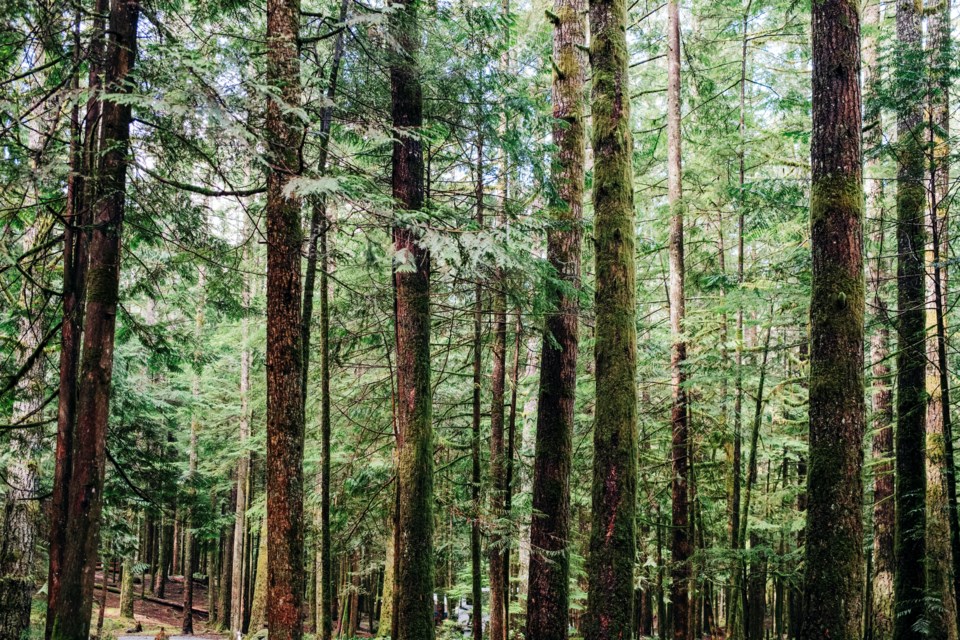The provincial government has given the green light to Squamish's community forest.
The provincial government granted Sḵwx̱wú7mesh Úxwumixw (Squamish Nation) and the District of Squamish a Community Forest Agreement on Dec. 22, 2022.
“For generations, our forests provided both cultural significance and economic benefits for our people,” said Nation spokesperson Wilson Williams (Sxwíxwtn), in a news release. “Our Indigenous know-how, working in partnership with the District of Squamish, will help create wealth and prosperity for both our communities. More importantly, it is a significant step in the long process of reconciliation as our Nation seeks to reclaim rights that were taken away from us through racist and unjust policies.”
But wait, where is this community forest?
The Squamish Community Forest is made up of 11,303 hectares on the hillsides east and south of Squamish, including portions of the watersheds of Shannon Creek, Raffuse Creek, Stawamus River, Cheekye River, Mashiter Creek, Ring Creek and the lower Mamquam River. The lands are within the traditional territory of the Nation.
What is a community forest agreement?
According to the provincial government, community forest agreements are area-based forest licences that give the exclusive right to harvest the timber in the specified area to the First Nation, local government or community group — or a combination of those.
The annual allowable cut for the Squamish Community Forest is 20,000 cubic metres. Any profits from Squamish's forest operations will be equally shared between the Nation and the District.
“This initiative represents an amazing opportunity for the District of Squamish to work directly and collaboratively with the Squamish Nation to jointly and sustainably manage local forests in a way that reflects the goals and values identified by our community,” said Mayor and Squamish Community Forest board chair Armand Hurford.
“A great deal of work has happened to get us to where we are today, and we extend our appreciation to the Province of British Columbia for their support in making this possible for Squamish.”
The Squamish Community Forest is managed by the Squamish Community Forest Limited Partnership and governed by a board of directors made up of members appointed by the Nation and District.
The licence is valid for 25 years with a replacement option every 10 years. Squamish’s is one of 60 community forest agreements operating across the province.
Background
The 2019 Community Forest governance agreement was the first partnership agreement signed by the Nation and the District to co-manage a local asset.
"The partnership is recognized as a model of reconciliation and seeks to work within the principles of the United Nations Declaration on the Rights of Indigenous Peoples," the release states.
“We look forward to continuing discussion with the Nation’s economic development arm, Nch’ḵaỷ Development Corporation, and their forestry companies as we move forward to licence implementation,” added Hurford.
The advantages of Squamish having a community forest are said to be:
- Long-term economic development and local employment;
- Localized decision-making and planning over timber harvesting with consideration of key forest values such as cultural and spiritual sites, watersheds, the impact on views and recreational use;
- Education and research opportunities, including increased community awareness of forest management.
For more information about the Squamish Community Forest, go to squamishcommunityforest.org.
For more information about community forests, go to bccfa.ca.




